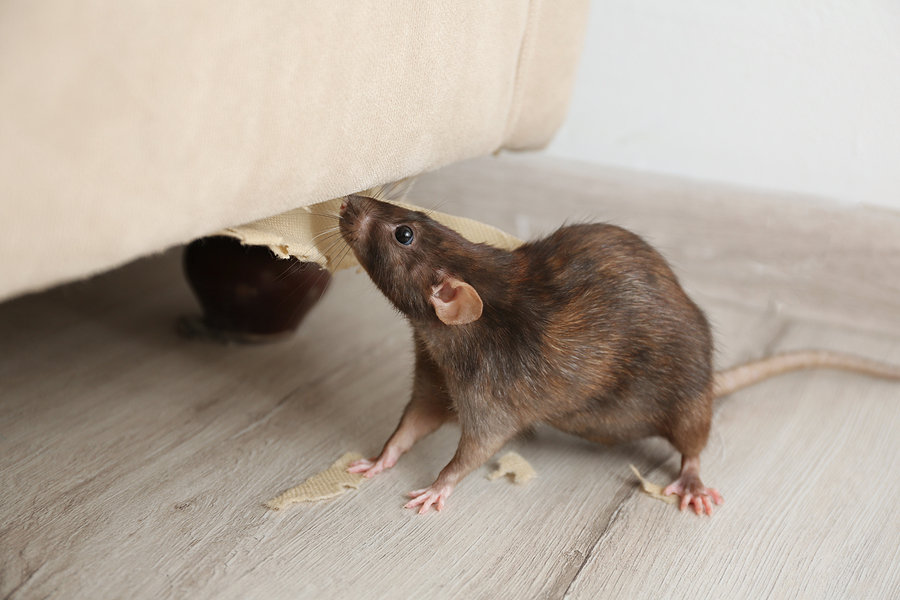Every homeowner dreads the tiny scuttling sound of rodents. Not only do they bring potential health risks, but they can also cause significant damage to your property. Tackling this issue head-on with DIY rodent-proofing maintenance tips can save you both time and money, while ensuring your home remains a safe haven.
In this comprehensive guide, we will explore strategies to prevent rodent infestations, maintain a rodent-free environment, and identify when professional help might be necessary. By mastering these tips, you will be well-equipped to protect your home from these unwelcome invaders.

Understanding the Rodent Threat
Rodents, including mice and rats, are common household pests. They are known for their ability to squeeze through small openings and their rapid reproduction rate, making them a persistent problem if not addressed promptly. The first step in any DIY rodent-proofing maintenance strategy is understanding the nature of the threat.
Why Rodents Enter Homes
Rodents are attracted to homes primarily in search of food, water, and shelter. During colder months, the warmth of your home also becomes a significant draw for these pests. Understanding these motivations can help you proactively address potential entry points and attractants.
Seal Entry Points
The most effective way to keep rodents out of your home is to prevent them from getting in. Start by inspecting the exterior of your home for potential entry points. Mice can squeeze through holes as small as a dime, and rats can fit through holes the size of a quarter.
Common Entry Points
- Gaps around windows and doors
- Cracks in the foundation
- Vents without screens
- Pipes and utility lines
Use materials like steel wool, caulk, and hardware cloth to seal these openings. For a more detailed guide on sealing techniques, check out our article on rodent control automation.
Maintain a Clean Environment
Rodents are less likely to visit a home where they cannot find food or water. By keeping your home clean and clutter-free, you make it less inviting for these pests.
Food and Waste Management
Store food in airtight containers and dispose of garbage regularly. Ensure that pet food is not left out overnight and that spills and crumbs are cleaned up promptly. Compost bins should be rodent-proofed as well to prevent attracting pests.
Yard Maintenance
Your yard can also be a significant attractant for rodents. Keep grass and shrubbery trimmed, remove piles of debris, and ensure that woodpiles are stored away from the house. For more yard maintenance tips, visit our integrated rodent management guide.
Natural Deterrents and Traps
Using natural deterrents and traps is a safe, environmentally friendly way to manage rodent populations. Essential oils like peppermint and eucalyptus can be used as natural repellents. Placing these oils on cotton balls in areas where rodents are likely to enter can deter them.
Humane Trapping Solutions
Consider humane traps that capture rodents alive, allowing you to release them back into the wild away from your home. For more on humane solutions, see our article on cat-safe rodent control.
When to Call in the Professionals
While DIY rodent-proofing maintenance tips are effective, there are times when professional intervention is necessary. If you notice signs of a large infestation, such as droppings or gnaw marks, it might be time to call in experts.
Professionals have access to tools and techniques that are not available to the general public, ensuring a more comprehensive solution to severe infestations. Additionally, they can provide ongoing maintenance plans to prevent future issues.

FAQ
How often should I inspect my home for rodent entry points?
Ideally, you should inspect your home seasonally, as rodents are more likely to seek shelter during colder months. Regular inspections can help you catch potential issues before they become serious problems.
Are natural deterrents effective in keeping rodents away?
Yes, natural deterrents like peppermint oil can be effective in keeping rodents at bay. However, they should be used as part of a comprehensive rodent-proofing strategy rather than a standalone solution.
What are the risks of ignoring a rodent problem?
Ignoring a rodent problem can lead to significant damage to your home, including chewed wires and insulation. Additionally, rodents can carry diseases, posing a health risk to your family.
For more information on maintaining a rodent-free home, visit Good Housekeeping's guide on getting rid of mice.
